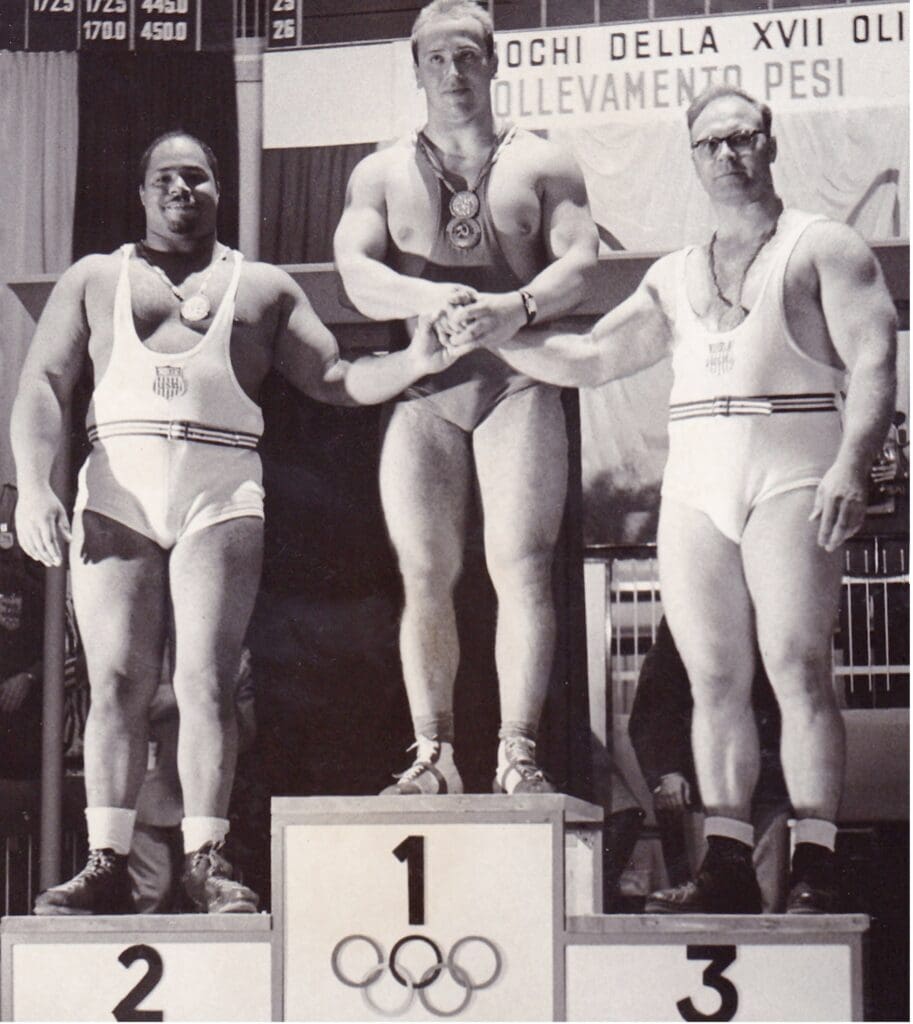Soviet Sports Psychology: The Mindset That Built Champions
by: Josh Bryant

Soviet Superman Yuri Vlasov winning the Gold at the 1960 Olympics.
The Soviet sports machine didn’t mess around—they churned out champions like moonshine in an Appalachian still. Whether it was lifting, wrestling, or running, they weren’t just showing up; they were there to dominate. Ruthless efficiency turned the competition into spectators.
Sure, you could blame it all on mystery potions and shady labs, but there’s another piece of the puzzle: sports psychology.
Next time you’re at Coney Island, skip the freak show and wander down to Brighton Beach. Not only will you find the best borscht this side of Saint Petersburg, but you might meet some Soviet old heads ready to share tales of vodka, victory, and their sports psychology playbook.
It Wasn’t Just the Drugs
The real secret weapon? A guy named Avksenty Tcezarevich Puni (yeah, I can’t pronounce it either). Puni was the mastermind behind Soviet sports psychology, developing strategies to prepare athletes for the mental side of competition.
His system was simple but effective:
- General prep: Build habits like determination, courage, and focus.
- Sport-specific prep: Fine-tune the mind to match the demands of the sport
The Five Rules of Mental Readiness
Puni’s ultimate goal was to help athletes achieve what he called boevaya gotovnost—“readiness to fight.” Here’s how he broke it down:
- Realistic Self-Confidence
You can’t fake confidence when it counts. Whether you’re staring down a loaded barbell, holding your ground in the county jail chow line, or strutting shirtless at the company pool party where the CEO picks her promotions based on how your chest and abs pop—belief in your training seals the deal.

Build REAL Self-Confidence with one of Josh’s Training Plans
- Effort and Grit
Hard truth: quitting is contagious. Want to dominate? Train like it. Puni’s athletes learned to push through tough times—because the habit of giving up is harder to break than bad form. - Controlled Emotional Arousal
Jack Nicklaus visualized every putt before a tournament, keeping his nerves in check. A linebacker? He needs to balance aggression and control. The mindset for golf isn’t the same as football—find your zone for your sport. - Stress Tolerance
Block out distractions and focus on the task at hand. Whether it’s fans booing, opponents trash-talking, or life throwing curveballs, keep your head in the game. The best athletes don’t overthink—they just do. - Self-Control
You’re not born mentally tough—you build it. Puni taught athletes to train their minds with the same discipline they brought to their physical workouts. Prepare, execute, repeat.
Mind and Body: The Dynamic Duo
Dr. Fred Hatfield said it best, “You can’t shoot a cannon out of a canoe.” Your mental and physical game are connected. Puni’s method built a strong psychological base first, then dialed in sport-specific strategies.
Flow State or Bust
Ever been in the zone? Time slows, distractions vanish, and you’re untouchable. That’s the magic elite athletes chase. But before unconscious competence, there’s the ugly phases. First, you’re unconsciously incompetent—like Uncle Earl trying to two-step after too much moonshine. Then conscious incompetence—realizing you’re bad but clueless on fixing it. Next comes conscious competence—where you’re good, but it feels like trying to skin a catfish with a butter knife. Finally, you hit unconscious competence: smooth, automatic, and deadly. Mike Tyson didn’t calculate angles before an uppercut; he just reacted. That’s mastery—where instinct does the heavy lifting.
How to Use This Today
You don’t have to wear a CCCP tracksuit to apply Puni’s wisdom. Here’s how to start:
- Build your confidence by trusting your training.
- Practice staying calm under pressure.
- Match your mindset to your sport—controlled rage for the football field, laser focus for the putting green.
The Soviets weren’t perfect, but they nailed one thing: mental preparation. Whether you’re chasing PRs, running marathons, or just dominate in life, remember—your mind is your most powerful tool. Train it like you mean it.
Build REAL Self-Confidence with one of Josh’s Training Plans HERE.
